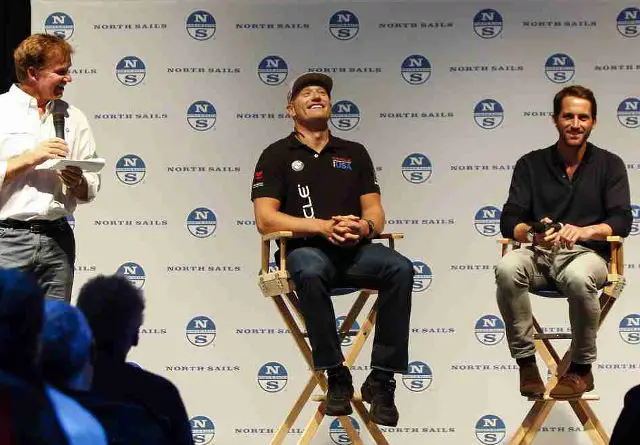This in from Suzanne and Alan. Ed
Expect to see some of the World’s iconic yachts in Cowes for the Royal Yacht Squadron’s Bicentenary International Regatta.
Provisional Class Splits have been announced for the races showing the three J-Class yachts as the first to start on the familiar line of the historic castle built in the time of Henry VIII. Lionheart, Ranger and Velsheda will lead the way for races and are expected to attract a large fleet of spectator boats, even though there will be safety measures that include a 200 metre exclusion zone around them.
Classic yachts
Next off will be the three giants of the classic yachts Eleonora, Mariquita and Sumurun and then the pedigrees of grand prix racing Rambler, Leopard, Jethou, Bella Mente, Odin and Spectre to name just a few.
Altogether over 80 yachts are in Cowes with some berthed in Cowes Yacht Haven and others on moorings.
World class Q&A
On the opening day of the RYS Bicentenary International Regatta racing was cancelled due to strong winds, however there was something to look forward to in the evening when three leading sailors took to the stage in Cowes Yacht Haven’s Event Centre to participate in a question and answer session.
Presented by North Sails the event was hosted and compered by the company’s President Ken Read. He introduced the audience to the America’s Cup winning skipper Jimmy Spithill, Olympian Gold sailor and AC campaigner Sir Ben Ainslie and Round the World sailor Sam Davies.
Inspiration, Encouragement and Nurturing
In his introduction Ken pointed out three key areas in sailing – Inspiration, Encouragement (Growing the Sport) and Nurturing. Statistics show that one in fifteen would-be-sailors continue to participate in the sport.
In answer to questions and referring to the recent America’s Cup World Series event in Portsmouth, Ben said that he was not on first name terms with the Royals, but he was very grateful for their support.
He was amazed by the sight of more than 2,000 spectator boats on the water to watch the fleet racing. That and the crowds around the racecourse off Portsmouth/Southsea was a big surprise.
18 months in the making
It had taken 18 months to build up the British team that will hopefully contest the America’s Cup proper in Bermuda. Ben thought the appointment of ex Formula 1 team principal, Martin Whitmarsh (Mclaren), as CEO of the team three months ago was a crucial development.
His only worry was the foil technology. He said,
“We are playing catch up. You are only allowed to build six dagger boards so the scope for experimenting is limited.”
Ben added that he and Jimmy Spithill were fierce rivals but they were also good friends. They sailed together in 2000 and famously came together in the last edition of the America’s Cup with Oracle Team USA looking dead and buried when 1.8 down.
Highly competitive team
Jimmy acknowledged that Ben’s team is going to be highly competitive, but “he did selfishly leave us”-he quipped. He did admit to enjoying a hard, fair fight though.
After another question from the floor with regard to figureheads, Jimmy admitted,
“With any team in any discipline there is always a figurehead who gets all the attention. For motivation, you only have to look to the back room team members – the unsung heroes.”
Sam added to this that in her single-handed sailing, if it had not been for the back-up team, things would be very different.
All three panellists agreed it was important to encourage young sailors. Sam said that Volvo had done a good job of introducing young visitors to the Volvo World Race. Yachting is a big event in France, where Sam now lives. She said that young people were given every encouragement there.
Jimmy pointed out that the Youth America’s Cup was viewed as a distraction by some, but a lot of good came out of it with the winner now skippering Team New Zealand.
Looking forward
Looking to the next America’s Cup Jimmy said that Oracle had a very young team adding that today kids have so many distractions.
Ben said that his 1851Trust majors on youth development which can only be a positive factor. Young people joining the Trust could not only learn to sail but could cover all aspects of the marine industry from boat design and building to technology.





